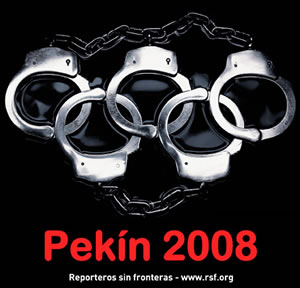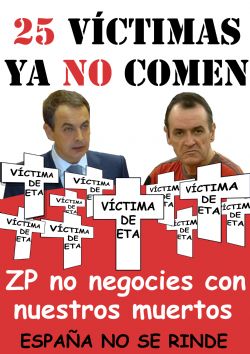President Hugo Chavez said Thursday that soldiers will accompany government officials when they take over oil projects in the Orinoco River basin next month.
Chavez has decreed that Petroleos de Venezuela SA, or PDVSA, will take a minimum 60 percent stake in four heavy-oil projects in the Orinoco River region and invited the six private companies operating there to stay on as minority partners.
«On May 1 we are going to take control of the oil fields,» Chavez said. «I’m sure no transnational company is going to draw a shotgun, but we will go with the armed forces and the people.»
The projects — run by BP PLC, Exxon Mobil Corp., Chevron Corp., ConocoPhillips, France’s Total SA and Norway’s Statoil ASA — upgrade heavy, tar-like crude into more marketable oils and are considered Venezuela’s most promising. As older fields elsewhere go into decline, development of the Orinoco is seen as key to Venezuela’s future production.
Isn’t it wonderful??? He invited, how sweet, how understanding of the situation…
PoliBlog ™: A Rough Draft of my Thoughts writes about this:
In all seriousness, while I do not think that Chávez is as pernicious as some do (I see a lot of what he does as far more bluster than reality), I can’t help but think that he is going to, in the end, damage Venezuela’s economy just as he has severely damaged its democracy.
Well, if he has «severely damaged its democracy» then he is really pernicious…
Poliblog comenta que no tiene una idea tan mala de Chávez, pero que no puede dejar de pensar que va a dañar la economía de Venezuela tanto como ha dañado la democracia.
Como digo arriba el hecho de que haya dañado la democracia de forma grave, a mí me es suficiente para considerarle alguien pernicioso.
But we continue: from NoisyRoom.net » Blog Archive » Venezuelan President Hugo Chavez Calls Reconciliation With the U.S. ‘Impossible’
Venezuelan President Hugo Chavez, threatening to cut off oil shipments to the U.S. if its government supports any efforts to oust him, said that reconciliation with Washington was impossible.
Chavez said a thirst for oil motivated both the U.S.-led invasion of Iraq and a failed 2002 coup against him. The outspoken leader has often accused the U.S. of being behind the coup, and Washington has repeatedly denied the allegation.
“There is no possibility of understanding for our revolution with the government of the United States, with U.S. imperialism,” Chavez said during a news conference to mark the fifth anniversary of his return to power two days after the coup.
Yes, yes. Hugo, we know that you only care for love, and that US hates Venezuela: that is why trade balance between the two states is favorable to … Venezuela.
But the cenit of Hugo’s malevolence comes when he says:
Chavez also said that the Sept. 11, 2001, terrorist attacks were “a gift for (President) Bush” because they enabled him to wage war.
Pero el colmo ha sido cuando ha dicho que los atentados del 11 de septiembre fueron un «regalo para Bush» porque le permitieron iniciar una guerra.
Ex vicepresidente sandinista pide un socialismo tolerante y no tan radical como el de Venezuela El modelo socialista ´´debería medirse por su institucionalidad democrática y su tolerancia´´ para alejarse del ´´viejo modelo autoritario´´, opinó el ex vicepresidente sandinista Sergio Ramírez, en una entrevista en la cual criticó al actual gobierno de Daniel Ortega en Nicaragua.
«In Nicaragua the Constitution is being reformed for Daniel Ortega could be re-elected, the same that it’s happenning in Bolivia and tht certainly conveys intolerance for critics and independent opinion. We are not viewing a model of neosocialism but in front of an old neo-authoritarian model which has been so damaging for Hispanic America«.
And now Chávez confronts Chilean President Bachelet from Noticias24 :: Actualidad » Dura crítica del diario ‘El Mercurio’
“La concentración de poderes de Chávez no tiene parangón en ningún país del sistema interamericano que pretenda mantener la condición democrática”. Así cuestion hoy el diario chileno “El Mercurio”, en su editorial, el carácter democrático del Gobierno de Hugo Chávez.
A 48 horas de la visita de Michelle Bachelet a Venezuela, el Presidente Chávez se permitió atacar públicamente al Senado de Chile, a raíz de haber éste acordado solicitar a aquélla que presente ante la OEA, en nombre de nuestro país, una protesta por el arbitrario término de la concesión a la estación independiente Radio Caracas TV. La mayoría del Senado -por 18 votos UDI, RN, PPD y DC (incluido el del ex Presidente Frei, actual presidente de la Cámara Alta), contra seis votos PS y PPD- estimó que eso atenta contra la libertad de pensamiento y de expresión, y no puede ser aceptado por estados democráticos.
Continúa haciendo amigos, vamos…
«Chávez’s concentration of power has no equal in any other country of the interamerican system that pretends to maintain its democratic condition«.that is the editorial of the Chilean newspaper EL Mercurio, about the «democratic» condition of Hugo Chávez Government.
48 hours before the visit of Michelle Bachelet (Chilean PM) to Venezuela, President Chávez attacked publicly the Chilean Senate, because of the protest it made about the arbitrary ending of Independiente Radio Caracas Station TV concession.
The majority of the Senate -18 votes (including the ex-president Frei) against 6- esteemed that Chavez´Government attitude and procedure is an attack against the freedom of thought and expression, and cannot be accepted by any democratic Government.
As you know, Chávez has Bolívar as a hero. There is a very good article about his figure at EldiarioExterior.com
Bolívar tenía un concepto muy extraño de democracia. Él creía que los pueblos sudamericanos no podían practicar virtudes democráticas como los europeos9. Cuando en Bolivia se le presentó la oportunidad de escribir una constitución, Bolívar la aprovechó para escribir una a su medida: presidencia vitalicia (él), senadores hereditarios, diputados elegidos por el pueblo y «Censores» con el deber de «proteger la moral, las ciencias, las artes, la instrucción y la imprenta» (10).
«Si esto no es legítimo es al menos popular y, por lo mismo, propio de una república eminentemente democrática», le dijo Bolívar a Francisco de Paula Santander cuando éste se opuso a que la constitución «democrática» de Bolivia fuese aplicada a la Gran Colombia (11). ¿Cómo se puede creer que alguien que asumió poderes dictatoriales en Caracas en 1813, en Angostura en 1817, en Lima en 1824 y luego en Bogotá en 1828 era un demócrata? (12).
Álvaro Vargas Llosa dice que Bolívar encarnó el «pecado original» de las repúblicas latinoamericanas: «el elitismo, el totalitarismo, y una pasión desmesurada por lo que nosotros conocemos como la construcción social» (13).
Alvaro Vargas Llogas considers that Bolivar incarnated the «original sin» of all the Latin-American republics: «elitism, totalitarism and giantic passion for what we know as the social construction«.
From Fausta’s Blog:
Speaking of Chavez, Miguel has a post on fudged statistics on highway deaths, and one on CANTV and Electricidad de Caracas and the end of an era. Investor’s Business Daily explains how Chavez Blows Venezuela’s Fortune
Venezuela’s state oil company is a mess. Revenue in 2006 came to $101 billion, down 26% from the year before, and profit was only $4.8 billion. The poor results were due in part to the $13 billion of investment money that Chavez diverted to handouts for the poor. It is estimated that the company needs to be spending at least $3 billion a year on infrastructural maintenance and capital improvements.
Chavez is also giving away at least 100,000 barrels a day to Cuba, something the ruling Castro brothers sell on the open market at their own profit, draining Venezuela’s finances further.
The biggest reason for the decline in exports is falling production, the inevitable result of a long string of broken contracts and private-property expropriations. The investment that’s been chased out is not being replaced, not even by other state oil companies that Chavez claims to favor. Investment from U.S. companies has fallen more than 90%.
Además Chávez está dando 100.000 barriles por día a Cuba, dejando a los hermanos Castro que lo vendan en el mercado para su propio beneficio.
A todo ello se une que se ha disminuido drásticamente las inversiones tanto del país como extranjeras (las de USA cayeron un 90%).
Y para terminar resulta que:
Venezuela is also giving money to Bolivia and the Evo Morales’ tour: EldiarioExterior.com
Acusan a Evo Morales de repartir el dinero de Venezuela
El presidente de Bolivia, Evo Morales, continuó la gira en su país en la que reparte a alcaldes dinero de la cooperación venezolana, según fuentes oficiales, lo que ha hecho que la oposición lo acuse de hacer campaña para su reelección en el 2008. ´´A título de qué el gobierno venezolano estaría poniendo plata a esta gira en un país que es soberano´´, dijo la jefa de los diputados de Podemos, Lourdes Millares, y comentó que «es peligroso que un país dé plata con tanta facilidad´´.El prefecto (gobernador electo) de La Paz, José Luis Paredes, de Podemos, insistió en que los viajes de Morales por las regiones no son más que la organización de una «campaña para la reelección presidencial«.
Another MP Mr. Murillo, from , added that the President «has issued a supreme regulation which lets the Majors spend more money with no permission, something which is going to raise corruption«.
The elected Governor of La Paz, José Luis Paredes, from Podemos, insisted that «the trips of Morales by the regions are no more than a campaign for presidential reelection«.
Very interesting the link of Devil’s Excrement mentioned by Fausta above:
Chavez woke up one day and decided to «nationalize» CANTV and Electricidad de Caracas, just because he felt like it. The Ministers scrambled and explained to him that Venezuela has lost all arbitration cases in international Courts, owns CITGO in the US and the Government could not «nationalize» anything without creating problems all over theplace. So, the Government negotiated a high price for Electricidad de Caracas and a cheap price for CANTV, the latter indicating Verizon wanted to get out of here as fast as possible. Funny thing was, the Government ended up paying less that Mexican Carlos Slim was willing to pay for CANTV, about 18% less. Who gets hurt? First, international investors who held the stock and will be paid less. More interesting, the second largest chunk of shares after the international investors is owned by the company’s workers. So, in this era of «shared-ownership», «coops», «Co-management» and the like, the revolution is buying back the workers shares at around $2 per ordinary share. Funny things is, the workers paid around US$ 4 for them in 1996 and some of them had to pay financing. You got to love the workers paradise of the XXIst. Century!
El gobierno bolivariano no les está tratando muy bien a los trabajadores que se diga…
Related posts:








































